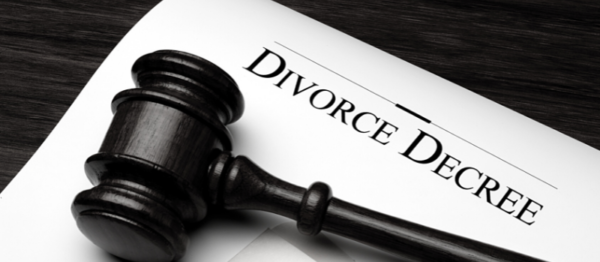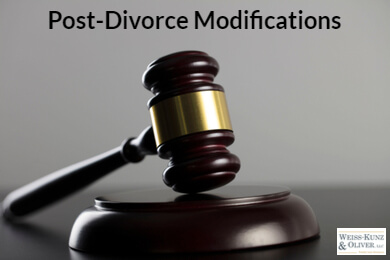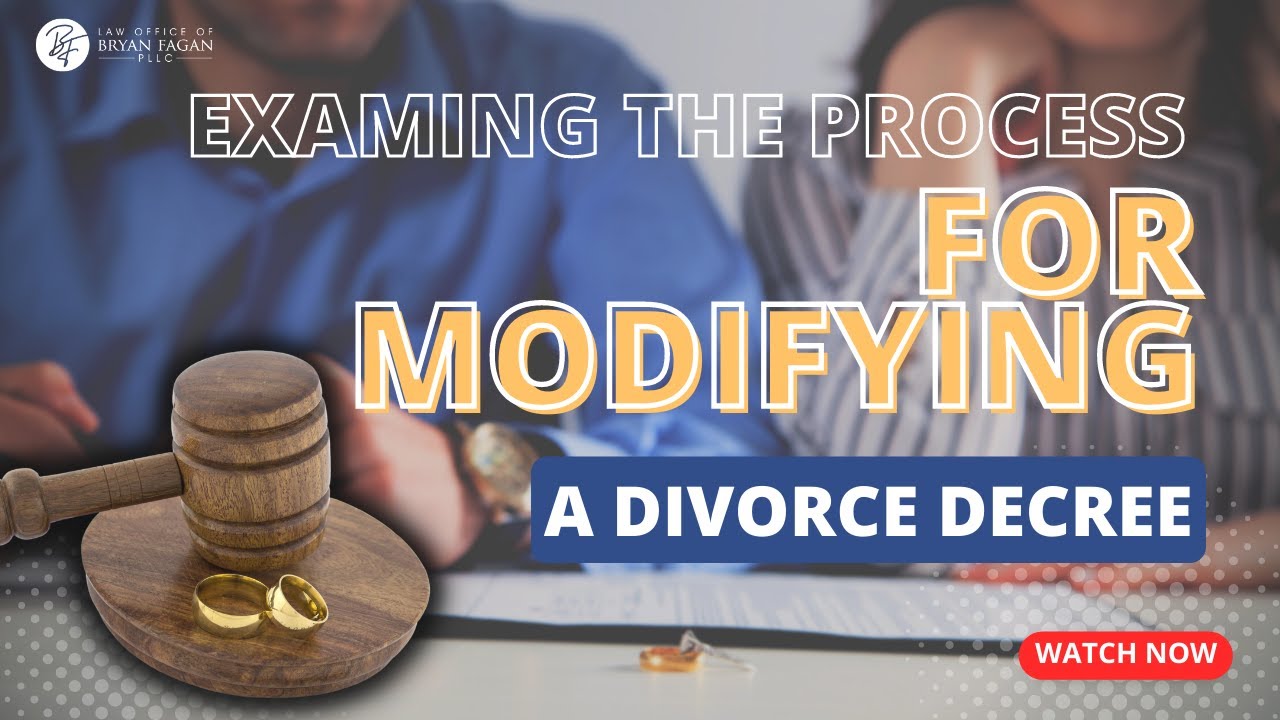Contents
- Understanding the Cost of Modifying a Divorce Decree
- Factors Affecting the Cost of Modifying a Divorce Decree
- Complexity of the Modification
- Contentiousness of the Divorce
- Experience and Reputation of the Attorneys
- Geographic Location
- Court’s Availability and Scheduling
- Time and Effort Required
- Financial Resources of the Parties
- Unresolved Issues or Disagreements
- Need for Expert Witnesses
- Court’s Discretion in Deciding Fees
- Legal Fees and Attorney Costs
- Hourly Rates
- Flat Fees for Uncontested Modifications
- Retainers and Deposit Requirements
- Additional Costs for Trial or Hearings
- Costs of Legal Research and Document Preparation
- Communication and Consultation Fees
- Billing Methods and Payment Plans
- Extra Charges for Complex Cases
- Possible Fee Disputes and Resolutions
- Negotiating a Reasonable Fee Agreement
Have you ever wondered how much it would cost to modify a divorce decree? Well, look no further! “Understanding the Cost of Modifying a Divorce Decree” is here to provide you with all the information you need. This informative article will guide you through the intricacies of modifying a divorce decree, shedding light on the potential costs involved. Whether you’re curious about the financial aspect or contemplating making changes to your own divorce decree, this article will help you navigate the complexities and understand the associated expenses.

Understanding the Cost of Modifying a Divorce Decree
If you find yourself in a situation where you need to modify a divorce decree, it is important to understand the potential costs associated with this process. Modifying a divorce decree involves making changes to the original court order that was put in place during the divorce proceedings. These modifications can be necessary due to various reasons such as changes in financial circumstances, child custody issues, or the need for adjustments in support payments. However, it is essential to keep in mind that modifying a divorce decree can come with financial implications, and being aware of the factors that affect these costs is crucial. In this article, we will delve into the various factors, fees, and expenses that can impact the cost of modifying a divorce decree, as well as provide considerations for reducing these costs.
Factors Affecting the Cost of Modifying a Divorce Decree
Several factors come into play when determining the cost of modifying a divorce decree. Understanding these factors can give you an idea of what to expect financially. Here are some of the key factors that can influence the cost:
Complexity of the Modification
The complexity of the modifications needed is a significant factor that affects the overall cost. If the changes involve a straightforward adjustment with minimal impact on other areas of the divorce decree, the cost may be relatively low. However, if the modifications require substantial revisions or involve multiple aspects such as child custody, visitation schedules, and support payments, the complexity can significantly increase the expenses.
Contentiousness of the Divorce
If you and your ex-spouse are on amicable terms and can reach an agreement easily, the cost of modifying the divorce decree may be more manageable. However, if there is significant contention and disagreements regarding the modifications, it can lead to prolonged negotiations, court hearings, and potentially higher legal fees.
Experience and Reputation of the Attorneys
The choice of attorneys can also impact the cost of modifying a divorce decree. More experienced and reputable attorneys may command higher hourly rates or flat fees. While their expertise can be valuable in complex cases, it is essential to consider the financial implications and determine what level of legal representation you are comfortable with based on your specific situation.
Geographic Location
Geographic location can play a role in determining the cost of modifying a divorce decree. In areas with a higher cost of living, legal fees and court expenses may be higher. Additionally, some areas may have more limited availability of attorneys or longer waiting times for court hearings, which can contribute to increased costs.
Court’s Availability and Scheduling
The availability of the court and its scheduling practices can impact the overall cost. If the court has limited availability or a backlog of cases, it could result in delays and potentially more court appearances, leading to increased expenses.
Time and Effort Required
The time and effort required to complete the modifications can also affect the cost. If the modifications can be resolved through negotiation or alternative dispute resolution methods like mediation or collaborative divorce, the costs may be lower. However, if the modifications necessitate extensive court involvement, multiple hearings, and significant legal work, it can result in higher fees.
Financial Resources of the Parties
The financial resources of both parties involved in the divorce can influence the overall cost. If one party has more significant financial resources and is willing to invest more in legal representation or experts, it can impact the expenses for both parties. It is crucial to have realistic expectations based on your financial situation and work within your means to manage the costs effectively.
Unresolved Issues or Disagreements
If there are unresolved issues or disagreements between you and your ex-spouse regarding the modifications, it can lead to increased costs. When parties cannot agree on certain aspects, it may require the intervention of the court, which can result in additional legal work and expenses.
Need for Expert Witnesses
In some cases, expert witnesses may be necessary to provide specialized knowledge or assessments related to the modifications. These experts can include professionals such as forensic accountants, valuations experts, or Child and Family Investigators. Their fees can add to the overall cost of modifying a divorce decree.
Court’s Discretion in Deciding Fees
It is important to note that the court has discretion in deciding the allocation of fees related to modifying a divorce decree. The court may require one party to pay some or all of the legal fees of the other party, depending on the circumstances. This discretionary power can have financial implications and should be considered when assessing the potential cost of modifying a divorce decree.

Legal Fees and Attorney Costs
When modifying a divorce decree, legal fees and attorney costs are a significant component of the overall expenses. Understanding the different aspects of legal fees can help you anticipate and manage the cost.
Hourly Rates
Many attorneys charge an hourly rate for their services. The hourly rates can vary depending on factors such as experience, reputation, and geographic location. It is important to have a clear understanding of the attorney’s hourly rate and how time spent on your case will be billed.
Flat Fees for Uncontested Modifications
In some cases, attorneys may offer flat fees for uncontested modifications. This means that if both parties are in agreement and require minimal legal assistance, the attorney may provide a set fee for handling the modifications. It is advisable to inquire about the possibility of a flat fee arrangement to better estimate and manage costs.
Retainers and Deposit Requirements
Attorneys often require clients to provide a retainer or deposit at the beginning of the representation. The retainer is a sum of money that the attorney holds in a client trust account and withdraws from as work is performed. It is essential to understand the retainer requirements and how the attorney will bill against it.
Additional Costs for Trial or Hearings
If your modifications cannot be resolved through negotiation and require a trial or multiple hearings, additional costs may be incurred. These costs can include trial preparation, court appearances, and the presentation of evidence. It is essential to inquire about the potential costs associated with trial or hearings to properly budget for these expenses.
Costs of Legal Research and Document Preparation
Legal research and document preparation are crucial aspects of modifying a divorce decree. Attorneys often dedicate significant time to research applicable laws, precedents, and case-specific details. The costs of legal research and document preparation are typically included in the overall legal fees, but it is worthwhile to confirm this with your attorney.
Communication and Consultation Fees
Attorneys may charge fees for communication and consultation related to the modifications. This can include phone calls, emails, or in-person meetings. It is important to clarify with your attorney how communication and consultation will be billed to avoid any surprises on your invoice.
Billing Methods and Payment Plans
Discussing billing methods and payment plans with your attorney can help you manage the cost of modifying a divorce decree. Some attorneys may offer options such as monthly billing or payment plans to accommodate their clients’ financial situations. Openly discussing these arrangements can ensure a clear understanding of the payment expectations.
Extra Charges for Complex Cases
If your modifications involve complex legal issues or require additional work beyond the usual scope, your attorney may charge extra fees. These fees are typically justified by the exceptional complexity and the additional time and effort required to address them. It is important to discuss the potential for extra charges in complex cases with your attorney and ensure that you have a clear understanding of the associated costs.
Possible Fee Disputes and Resolutions
In some cases, fee disputes may arise between the client and the attorney. These disputes can be related to the reasonableness of fees, billing errors, or unsatisfactory representation. If a fee dispute arises, it is advisable to address it promptly and seek resolution. Engaging in open and honest communication with your attorney can help resolve disagreements and prevent further financial strain.
Negotiating a Reasonable Fee Agreement
When hiring an attorney to assist with modifying a divorce decree, it is crucial to negotiate a reasonable fee agreement. Discussing your financial situation and expectations upfront can help you and your attorney come to an agreement that is fair and manageable for both parties.











